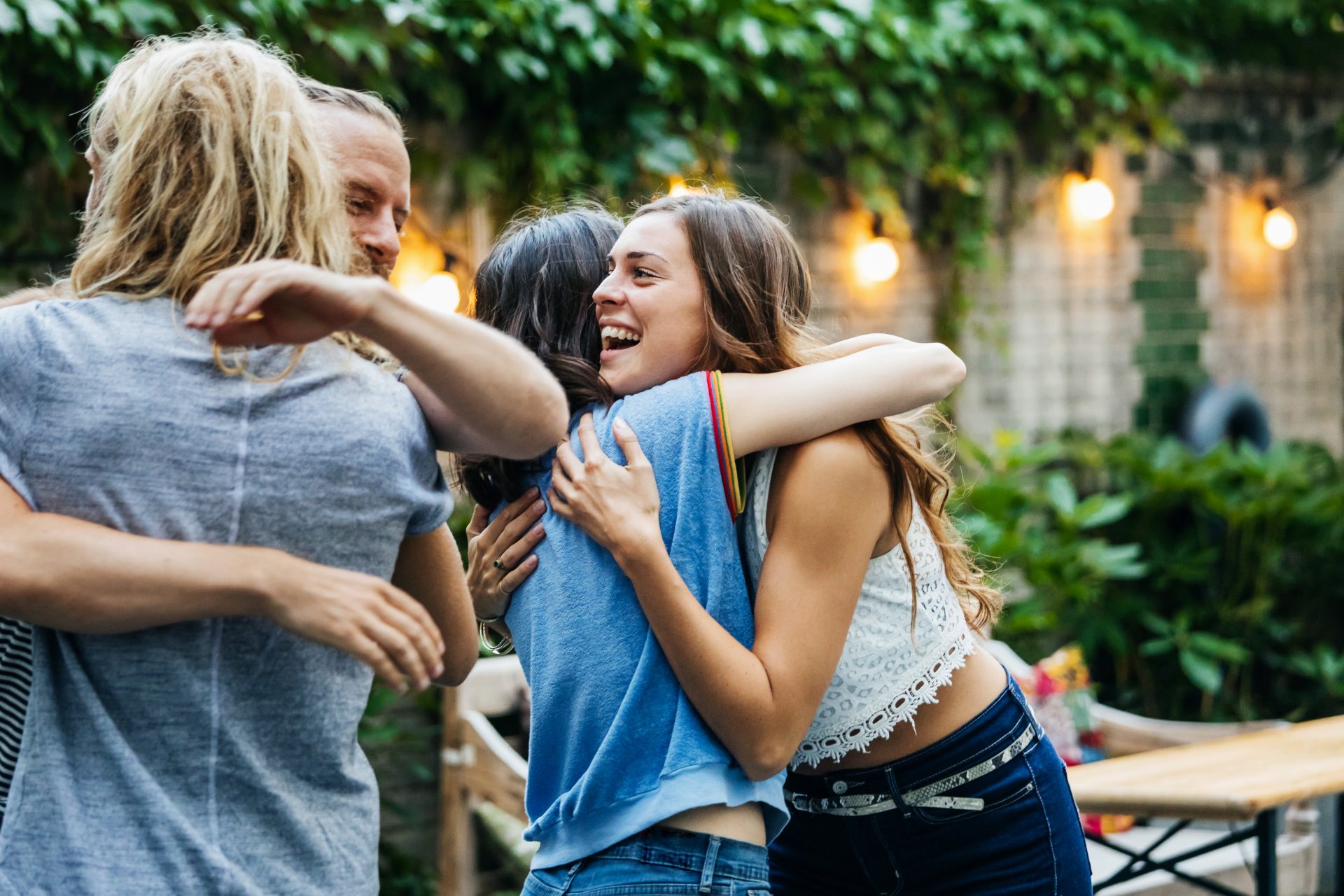Written by Amber Sunner
Feeling overwhelmed by the world reopening and wishing you could cancel your plans? Stylist investigates the allure of ‘flaking’.
After a seemingly endless amount of time in lockdown, things are reopening and the wider world is slowly returning to its natural state. As calendars begin to fill up with events and invitations that are actually outside of your four walls, the prospect of attending them can feel daunting. The allure of cancelling (also known as flaking) plans with friends is being felt by many.
A viral tweet from Dana Donnelly seemed to sum up this collective feeling for us. “Cancelling plans like “so sorry but it was actually a different, less depressed version of me that made those plans w you last week and the me that I am today doesn’t want to go,” she wrote.
Stories of people who felt similarly to Donnelly were shared and it helped us feel less alone in this dilemma. One user wittily replied: “I made those plans under the influence…of hope.”
A common feeling of anxiety attached to socialising post-pandemic is being felt by women up and down the country. Sravya Attaluri has social anxiety and shares this feeling. The 25-year-old told Stylist that the pandemic has made it easier for her to cancel plans. But as the world is slowly returning to normality, Sravya recognises that the pandemic-related excuses she relied on, such as not feeling safe on public transport, won’t stand the test of time. “I feel like people are mad at me because I’ve flaked before, even after telling them how my social anxiety restricts me. I don’t think they believe me.”
Sravya says she is now trying to get out of her comfort zone and resisting flaking on plans. “I was recently invited to a party, but on the day of the party I had to fight myself really hard to make sure I didn’t bail as I knew a lot of my friends wouldn’t understand my social anxiety. The last thing I wanted them to think is that I didn’t want to see them.” Sravya attended the party and said that she gained “a little more confidence” as a result of pushing herself.
The pandemic has been linked to an increase in stress disorders, sadness and fear. Coined ‘post-lockdown anxiety’, this feeling of fear and lack of enthusiasm to socialise is being felt around the globe.
Charlie made plans to see her friends when lockdown was easing in May. After turning 30 last winter, when restrictions began to ease, she invited six friends to a dinner as a late birthday celebration. However, an overwhelming feeling soon struck her. “A couple of weeks before the lunch I was in a completely different headspace – the anxiety of them not having a good time or sorting the logistics of them travelling to the restaurant – it felt like I had asked too much of them.” Charlie says whenever she wanted to be frank with her friends about how she was feeling, she felt “selfish and ridiculous”.
“I just kept putting it off and because I knew I was trying to avoid letting them down; I started distancing myself from them.” A few days before the lunch was set to take place, Charlie was nudged by a friend for details on the occasion – she told them how she was feeling.
“I cancelled the lunch and they were really understanding. It was important to me to do it on a phone call so they could ask me any questions, and so they knew that I was genuinely sorry for being flaky.”
Even though a month has passed since cancelling the event, Charlie still feels regret about how things panned out. “Even though my friends were really understanding, I still feel bad about it; I don’t understand it.” Charlie says “I am more likely to keep plans with the people who know me less well – occasional friends, work friends, friends of my partner. If they’re my close friends, I find it harder to keep them. I think deep down because I know they might actually seek a more real connection that I’m a little intimidated by right now, even though I know that that’s what I want too.”
Content editor Chandni Sembhi wanted to be the social butterfly that emerged from its chrysalis as soon as restrictions were lifted. The 24-year-old says the expectation to socialise has spurred her to tell all of her friends that she wants to socialise all summer. But such a task is proving difficult for her. “I now have plans every single weekend until mid-August. I’m already exhausted. I know that mental health and not having enough money are valid reasons for cancelling plans, and I know that my friends will be my friends even if I miss the odd get-together, but part of me feels like because we’ve been inside for the last year that I have to be out all the time.”
Chandi says that despite wanting to be as social as she can now that she can see people, sometimes she wants to flake on her friends. “There are times where I just can’t be bothered to get ready and go out and spend money. Sometimes, I just want to lounge around all day watching films, even though I’ve been doing that most weekends since lockdown started.” This feeling is known as ‘pandemic fatigue’, a World Health Organization term that aims to encapsulate the population’s possible demotivation towards certain activities.
Some of us have gotten used to the lax life quarantine gifted us. Not every Gen Z or millennial is eager for pubs to reopen or excited at the prospect of club rooms with sticky floors to open their bouncer-adorned doors. Preferring to stay at home is becoming increasingly popular for the younger generation.
21-year-old Hannah speaks about being torn between attending plans and cancelling plans. Her anxious and depressive episodes were the source of this indecisiveness, but as she grew older Hannah became aware of how important socialising was. “I learnt that it was key for forming friendships, but the self care discourse that emerged at that time kind of validated how I felt about cancelling plans.”
For Hannah, flaking became a routine and impacted her socialising. “People tend to just generally avoid making plans with you if you keep flaking and then I would regret cancelling.” Now, with a much more understanding group of friends and restrictions being lifted, Hannah is trying to make up for lost time. “We’re making more plans – and there is an added pressure to stick to these plans, but we are more aware of people’s personal situations so there is less judgment when cancelling or rescheduling.”
A rise in people becoming introverted has been seen. With minimal outside contact and human interaction at an all time low, the trend was to be expected.
Laura Garcia says her friends predict her flaking on plans when they see three dots indicating that she is typing a message to them. “I completely understand why they think I’m going to cancel because I have been that flaky friend many times before.” Laura attributes some of her ‘flakiness’ to her busy schedule but also recognises that “you should make time for the people you care about”.
Flaking on her friends makes the 33-year-old feel guilty, despite when she tries her hardest to keep plans with her friends.The pandemic has made the training and support manager realise that taking your friends for granted is something that shouldn’t be done. “It made me appreciate that it isn’t just drinks or just a dinner and that it is important to attend – you never know what can happen now.”
Despite this profound realisation, Laura, like many of us, doesn’t feel entirely comfortable reemerging back into the world again. “I’m not ready to rejoin society like that but I do think a year of not seeing people has made me think that I was missing chances to see my friends.”
The politics of being flaky is personal to each individual. Neuro-linguistic programming trainer Rebecca Lockwood advises Stylist readers not to rush into seeing friends and family. “Just because it is possible, it doesn’t mean you should rush into seeing as many people as possible if you do not feel like doing so.”
On flaking on friends, Lockwood says disappointing people is inevitable and should be expected, but advised to create boundaries for yourself. “Understand and explore your personality – if you prefer to be around people to gain your energy (extrovert) or if you prefer to be alone to gain your energy (introvert).”
This method, according to Lockwood, could help you understand what boundaries you need to put in place and help to distribute your energy wisely so that you will not over commit. “This will help ensure you are not letting people down too.”
Images: Getty
Source: Read Full Article



